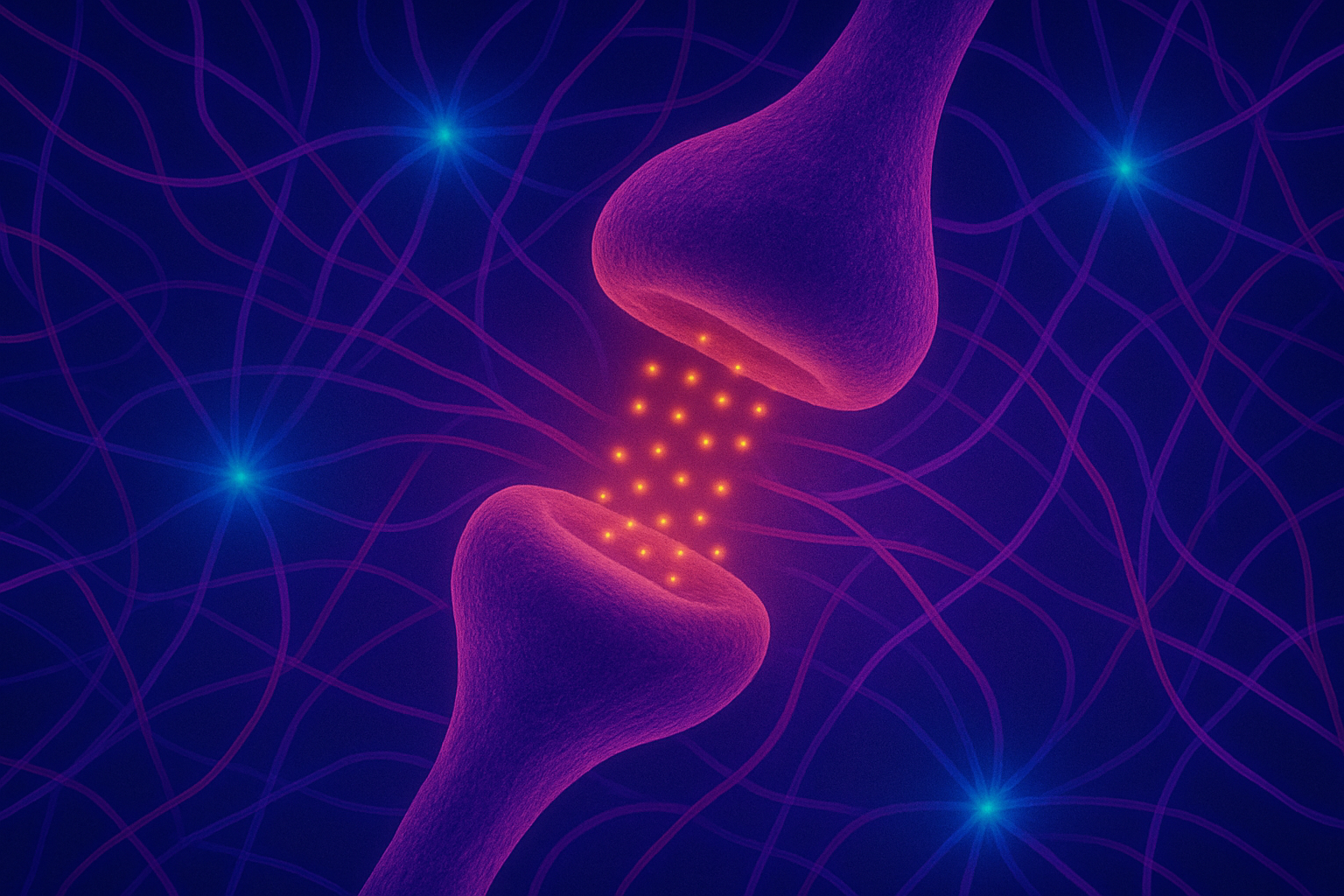For millions struggling with depression, anxiety, OCD, and trauma, traditional antidepressants like SSRIs offer hope but not always results. If you’ve tried medication without finding the relief you need, emerging research on psychedelic medicine offers a compelling explanation: these compounds work in fundamentally different ways at the cellular level.
When Traditional Treatments Fall Short
Conventional antidepressants primarily work by adjusting chemical messengers between neurons. SSRIs (Selective Serotonin Reuptake Inhibitors) increase serotonin availability in the brain by preventing its reabsorption at the synapse, essentially keeping more of this “feel-good” neurotransmitter in circulation.
While this approach helps many, it leaves a significant portion of patients searching for alternatives.
The emotional numbness, persistent symptoms, or lack of deeper insight that some experience with SSRIs has led researchers to investigate radically different approaches to mental health treatment.
The Cellular Revolution: Dr. Olson’s Groundbreaking Research
Dr. David Olson, a neuroscientist at UC Davis, has uncovered a fascinating difference in how psychedelics affect the brain:
SSRIs: Work primarily at the synapse (connection point between neurons)
Psychedelics: Penetrate the neuron itself
Once inside, these substances trigger a cascade of effects that activate growth pathways within the cell, leading to:
- Growth of new dendritic spines (tiny protrusions on neurons that receive signals)
- Enhanced neuroplasticity (the brain’s ability to form new connections)
- Structural remodeling of neural networks
In his 2018 landmark study, Dr. Olson’s team demonstrated that psychedelics promote structural and functional neural plasticity. His more recent 2023 research further elucidated the mechanism, showing that psychedelics activate neuroplasticity specifically through intracellular 5-HT2A receptors located inside neurons, not just on their surface.
In simpler terms: Psychedelics don’t just change the chemical messages, they change the physical structure of brain cells themselves.
Reopening Critical Periods: Dr. Dölen’s Revolutionary Insights
Building on this understanding of neuroplasticity, Dr. Gul Dölen’s research at Johns Hopkins University has revealed another extraordinary dimension of psychedelic effects: the potential to reopen “critical periods” in the adult brain.
What are critical periods?
Critical periods are specific windows during development when the brain is exceptionally malleable and primed for learning. Think of how children effortlessly acquire language or how young animals rapidly develop social bonds.
Dr. Dölen’s groundbreaking studies suggest that psychedelics like MDMA can temporarily reopen critical periods in adults, creating brief windows of heightened neuroplasticity. Her 2019 research demonstrated MDMA’s ability to reactivate social learning capabilities, while her 2023 work extended these findings to multiple psychedelic compounds.
This discovery has profound implications for treating conditions rooted in early life experiences. Trauma, attachment disorders, and certain forms of anxiety may respond especially well to treatments that briefly restore this heightened capacity for neural rewiring.
Breaking Through Treatment Resistance
This structural change represents a paradigm shift in mental health treatment. When someone experiences depression, anxiety, or trauma, certain neural pathways become rigid and entrenched. The brain gets “stuck” in patterns of thinking and feeling that resist change.
By enhancing neuroplasticity and potentially reopening critical periods, psychedelics help the brain create entirely new neural pathways rather than just modifying existing ones. This doesn’t just mask symptoms. It potentially allows the mind to forge different relationships with thoughts, emotions, and memories.
You might be ready to explore beyond SSRIs if you’ve experienced:
- Persistent symptoms despite trying multiple medications
- Emotional numbness or flatness while on antidepressants
- Difficulty accessing deeper insights in traditional therapy
- Feeling “stuck” in entrenched thought patterns or behaviors
- Seeking more profound transformation beyond symptom management
For those who have felt that conventional treatments only scratch the surface of their struggles, this neurobiological reset may be the key to breakthrough experiences that conventional medications simply cannot provide.
SSRI Interactions: Important Considerations by Compound
Many patients ask whether they need to discontinue their SSRIs before psychedelic therapy. The answer varies by compound.
Here’s what we know about three of the most well-researched compounds:
Ketamine
- SSRI Impact: Minimal interference due to ketamine’s primary action on glutamate systems rather than serotonin
- Experience: Subjective experience may be slightly dulled but therapeutic benefits largely preserved
- Best practice: No taper required; proceed with standard protocols
- Summary: Least affected by concurrent SSRI use
Psilocybin
- SSRI Impact: May reduce intensity but doesn’t completely block therapeutic effects
- Experience: The mystical experience component may be attenuated
- Best practice: Taper if medically appropriate and possible; proceed with adjusted dosing if taper not advisable
- Summary: Moderately affected by concurrent SSRI use
MDMA
- SSRI Impact: SSRIs significantly blunt the therapeutic effect
- Mechanism: MDMA relies heavily on serotonin release, which SSRIs directly inhibit
- Best practice: Medically supervised SSRI taper 2-6 weeks before treatment
- Summary: Most affected by concurrent SSRI use
Important: Any medication adjustments should always be made under close psychiatric supervision. Never discontinue prescribed medications without professional guidance.
The Integration Difference: Beyond the Experience
Psychedelic therapy isn’t simply about the compound. It’s about the therapeutic container and integration process. Unlike taking a daily pill, these treatments involve:
1. Preparation
Establishing intentions, building safety, and preparing for the experience.
2. Guided Sessions
Professional support throughout the journey to navigate difficult emotions and maximize therapeutic benefit.
3. Integration Work
Processing insights, translating experiences into daily life, and sustaining positive changes.
This comprehensive approach views psychedelic medicines not as replacements for therapy but as catalysts that can accelerate and deepen the therapeutic process. The neuroplastic effects open windows of opportunity, while skilled integration helps ensure that insights translate to meaningful life changes.
Take the Next Step with AK Psychology Group
At AK Psychology Group, we specialize in Psychedelic-Assisted Therapy, offering personalized treatment plans that integrate the latest scientific insights with compassionate care. If you’re ready to explore transformative healing beyond traditional approaches, contact us today to schedule a consultation.
This article is for informational purposes only and does not constitute medical advice. Always consult with qualified healthcare providers regarding treatment options for any medical condition.
References
- Ly, C., Greb, A. C., Cameron, L. P., Wong, J. M., Barragan, E. V., Wilson, P. C., … & Olson, D. E. (2018). Psychedelics promote structural and functional neural plasticity. Cell Reports, 23(11), 3170–3182.
- Vargas, M. V., Dunlap, L. E., Dong, C., Carter, S. J., Tombari, R. J., Jami, S. A., … & Olson, D. E. (2023). Psychedelics promote neuroplasticity through the activation of intracellular 5-HT2A receptors. Science, 379(6631), 1301–1306.
- Nardou, R., Sawyer, E. K., Song, Y. J., Wilkinson, M. B., Padovan-Hernandez, Y., de Deus, J. L., … & Dölen, G. (2023). Psychedelics reopen the social reward learning critical period. Nature, 618(7966), 123–131.
- Nardou, R., Lewis, E. M., Roth, B. L., & Dölen, G. (2019). Oxytocin-dependent reopening of a social reward learning critical period with MDMA. Nature, 569(7754), 116–120.








